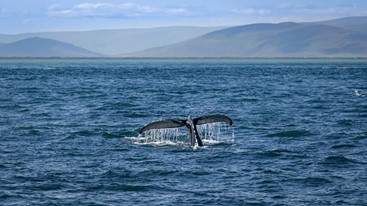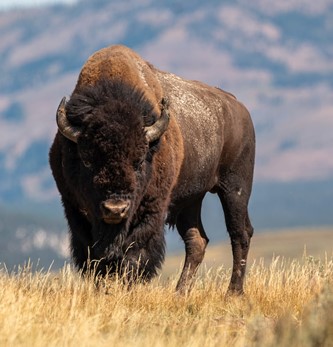There have been many great conservation efforts that have taken place over the last few months. Selwyn Duijvestijn discusses below a few of the recent notable successes in the world of conservation.
In the UK efforts to bring back the European Bison resulted in the first calf to be born on British shores in 1000 years. Fin whales once thought to be on the verge of extinction are returning back to ancestral feeding spots. And, the Global Typology of Ecosystems is helping to shape both knowledge and policy for the benefit of everyone.
First European Bison in 1000 Years Born in the UK
In Kent in the UK, the first European Bison was born in September 2022 in over 1000 years.
A small herd of female bison was introduced to the woodland in the county in July of the same year, but conservationists had no idea that one of the cows was pregnant. This is because bison often hide their pregnancies as a survival mechanism, so it was not picked up on when she was initially released.
On September 9th, the bison rangers in charge of monitoring the animals were in for a surprise when the calf emerged from the woods with its mother, marking a historic, if not unplanned, moment for the conservation project.
In the early 20th century, the European Bison was almost extinct, with no wild population. The species only survived thanks to captive animals in zoos, which have been used to gradually restore the bison’s numbers and release them back into the wild.
Fin Whales Making a Comeback
In 2022, marine scientists were able to discover that fin whales were returning to feeding grounds where they have not been for decades.
The species was almost brought to extinction in the 20th century, and so to see these animals returning to the Southern Ocean near Antarctica is good news for the future of these whales and for the planet, as they can help to trap more carbon dioxide in the oceans, helping to slow the effects of global warming.
The future for other whale species is also looking promising, as Iceland appears to be reaching closer to a ban on commercial whaling operations. This would then just leave Japan and Norway as the only nations to continue with the practice.

The Global Typology of Ecosystems
One of the ways in which conservation efforts around the world can be facilitated is by gaining an in-depth understanding of the ecosystems that we need to protect.
Several years of work and research from many prominent scientists culminated in the Global Typology of Ecosystems in October 2022. This detailed list looks at every different ecosystem in the world, and all of the core components and functions that make them unique.
The typology can then be used by organizations and governments in order to set effective targets in order to protect these ecosystems such as the International Union for the Conservation of Nature, in turn helping the planet and the lifeforms that make these places their homes.

